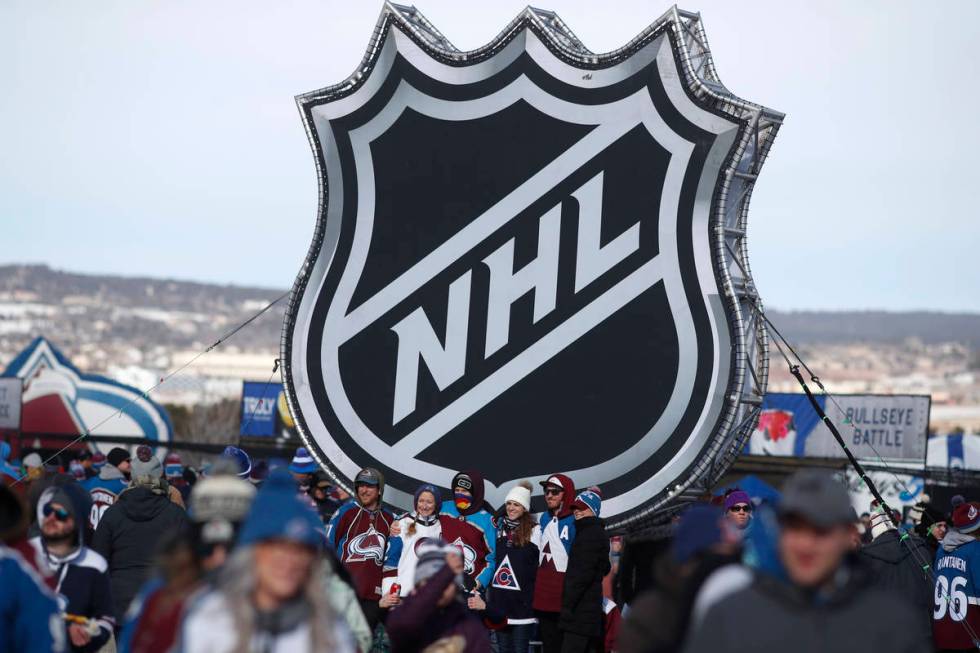A look at life inside the NHL’s Phase Four Secure Zone

Let’s start with the name. They’re not bubbles or domes or campuses or even the NHL’s version of Seahaven Island from “The Truman Show.”
No, the league would prefer them to be called “Phase Four Secure Zones.”
Players and staff will follow a strict set of health protocols for daily life during the NHL’s 24-team postseason tournament, including instructions on how to use an elevator.
The NHL Players’ Association executive committee approved the tentative agreement on a new collective bargaining agreement and the return-to-play protocols late Tuesday, and the full membership began voting Wednesday.
The results are expected to be announced Friday, and if approved, it would pave the way for the league to resume after being paused since March 12 because of the coronavirus pandemic.
Training camp (Phase Three) is scheduled to begin Monday, with teams traveling to their respective hub cities — reportedly Edmonton, Alberta, and Toronto — on July 26. The qualifying round/round robin will begin Aug. 1.
The secure zones include the hotels, dining destinations, arena, practice facilities and other demarcated areas (indoor and outdoor), according to the NHL memo on Phase Four. Individuals who are neither working nor staying at a hotel within the secure zone will not be allowed inside.
Each club is permitted a maximum of 52 people in the secure zone, which includes players, coaches, executives, staff and other personnel.
Rosters will consist of no more than 31 players, and the traveling party must include at least one of the following: massage therapist, Active Release Technique (ART) therapist/chiropractor and content creator/social media individual.
Once players and staff arrive at the secure zones, they may not leave without permission from the NHL.
“Individuals leaving the Phase Four Secure Zone without permission may be subject to consequences up to and including the removal from the Phase Four, or in other cases, strict quarantines of up to 10-14 days as well as enhanced testing and monitoring upon return,” the memo said. “For clubs, significant penalties, potentially including fines and/or loss of draft choices.”
In addition to maintaining social distancing (minimum of 6 feet apart), individuals are required to wear face coverings outside of their room. Masks can be taken off while eating or drinking and exercising.
All members of the traveling party will undergo daily COVID-19 tests, symptom checks and temperature screenings inside the secure zone.
If an individual tests positive for the coronavirus, the person will be moved to a secure isolation area or hospitalized, if required. They can return after they test negative twice at least 24 hours apart or following 10 days in self-isolation if they had no symptoms for more than 72 hours.
If an individual is asymptomatic and is confirmed positive, the person will be required to self-isolate and can return after two negative tests at least 24 hours apart or the passage of 10 days since the initial positive test, as long as they remained asymptomatic.
Players will stay in their own hotel room on their team’s designated floor and are not allowed to enter each other’s room. The hotel lobby, bar, pools and fitness centers will be open with social distancing required, and no dress code will be enforced.
“Recognizing the importance of mental health and the psychological benefit of variation in activity, social excursions will be arranged both inside and outside the Phase Four Secure Zone,” according to the memo.
The dining options include hotel restaurants and “modified buffet style meals … subject to plexiglass (or similar) barriers being set up between servers and individuals to maintain social distancing and contactless service.”
Individuals also can order from local restaurants, with contactless delivery at designated locations inside the secure zone where packages will be disinfected with wipes.
In elevators, individuals are not permitted to talk and are encouraged to avoid using fingers to press buttons.
“Instead use knuckles or elbows,” the memo states.
Family members are not permitted in the secure zone until the conference finals. With players away, each team must make “best efforts to assist in providing grocery delivery and errand delivery services” to the player’s family members.
“The health of players, club personnel, league personnel and all individuals participating in Phase Four remains the league’s top priority in the transition from Phase Three training camp activities in each of the 24 clubs’ home cities to game play in the Phase Four Secure Zones,” the memo states. “The NHL and the NHLPA, together with their respective medical, epidemiological and infectious diseases experts, have worked together closely in establishing this protocol for Phase Four.”
Contact David Schoen at dschoen@reviewjournal.com or 702-387-5203. Follow @DavidSchoenLVRJ on Twitter.